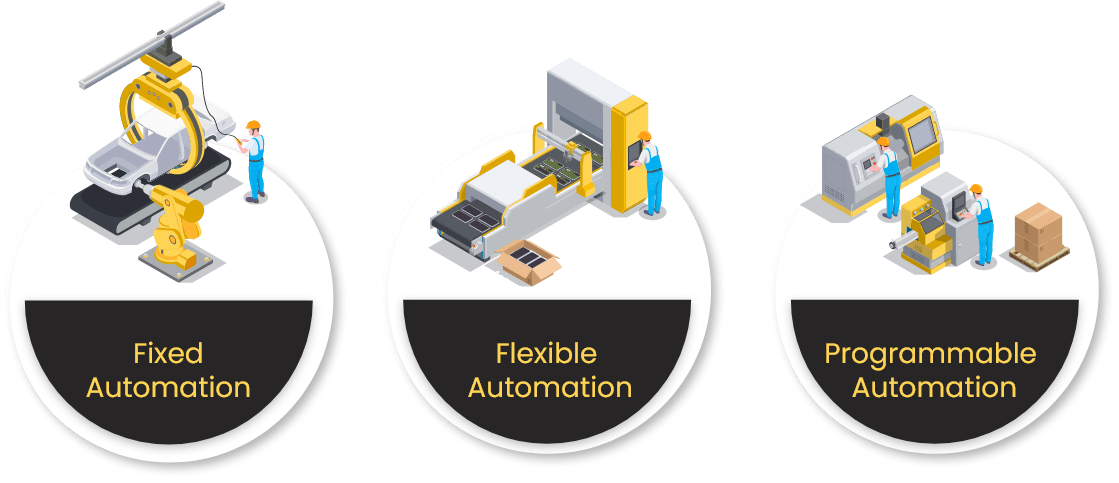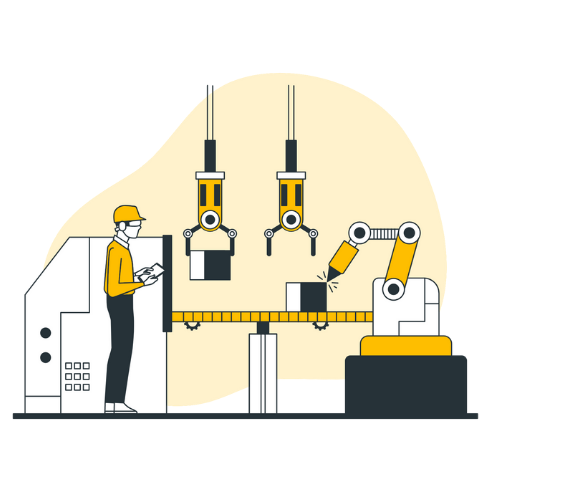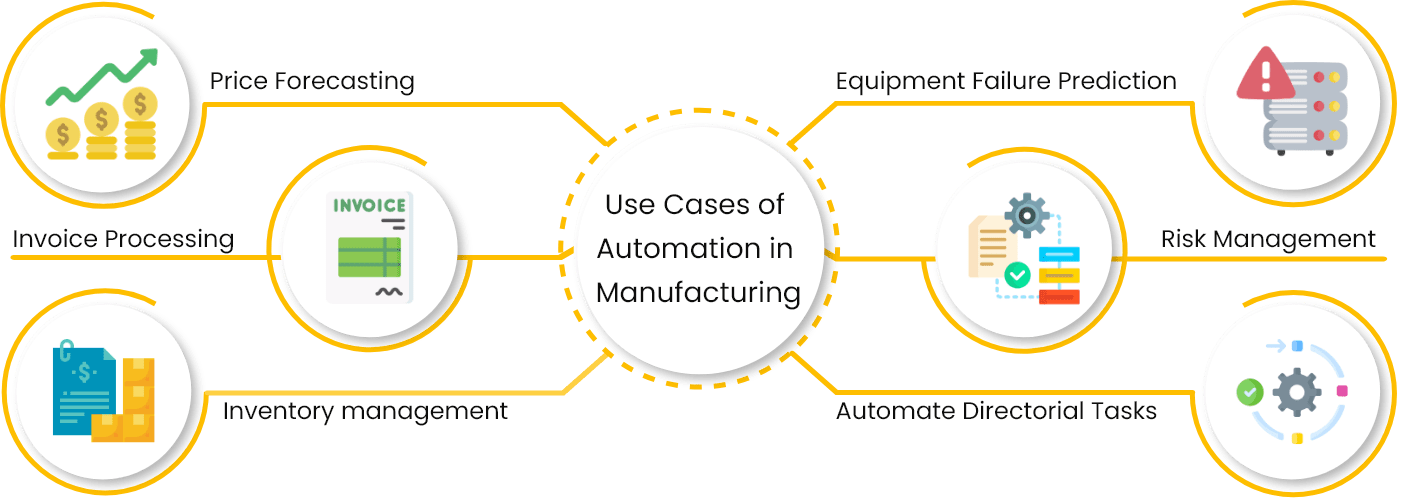

The world is moving very fast and many industries are innovating to compete by leveraging the power of an AI to automate their things which creates major positive impacts to heighten their business.
Specially manufacturing industries are using AI to automate their equipment or production process. Automation increases the production capacity & reduces costs which results in great efficiency.
In this article, we will see how automation is transforming the complete structure of the manufacturing industry. To get proper understanding & knowledge, be conscious while reading the article.
The main purpose of manufacturing industries is to attain sustained growth & earning through customer loyalty, creating high-value products, and eroded disruption in a very dynamic global market.
First, let’s know the types of manufacturing automation?
Basically, there are 3 types of manufacturing automation that are being used by many industries to transform their manufacturing process.

It is also called hard automation and it has a fixed task. These types of automation are used in large volume production and most programming is contained within the individual machines.
Body-in-white is one of the best examples of fixed automation which is used in automotive.
Advantages:
Disadvantages:
When there are customization & frequent changes throughout the manufacturing process then programmable automation is the best choice to use.
The whole process is controlled by a program of instruction that is read & interpreted by the system. You can also enter a new program into the hardware to produce new products at any time.
Industrial robots are the best example of programmable automation.
To produce a variety of parts manufacturing companies use flexible automation with virtually no time lost for changeovers.
This type of automation is connected to some networks and programmers can upload new programs to work them in existing systems from anywhere in the world.
Robots arms that are programmed for multiple tasks are the best example of flexible automation.
Now let’s see the use cases of automation in manufacturing.

Many manufacturing companies are facing several muddles like assembly, test, and packaging tasks. According to research losses due to these types of manual work have increased close to 30%.
There are lots of use cases of automation that every manufacturing industry needs to leverage for its industrial growth.
Sometimes during the manufacturing process, there could be some product that may look perfect but during its use its performance decreases which may cause equipment failure.
Many companies are facing the same issue but computer vision has great potential to inspect the performance & quality of equipment to ensure all parts are perfect and there is no chance of equipment failure.
To compete with competitors it is important to transform your manufacturing process using AI solutions which may save you lots of time, money, & extra effort.
Every industry needs to predict its product price accurately if not done then that may cost huge revenue loss for the company.
There are lots of manufacturing industries that are leveraging the power of machine learning to forecast the price of their products with great accuracy.
Machine learning algorithms have great potential to predict the accurate price of products based on past data.
Accurate price of the product is very important for any type of company to save a huge amount of money from being lost.
When invoice processing is done manually then the task of obtaining, assigning, and approving takes much more extra time which needs to be optimized for every manufacturing company for gaining higher productivity.
Robotic Process Automation is great technology to use for invoice processing. RPA uses the UiPath for automating the invoice processing task with great efficiency without any human intervention.
Many large companies are leveraging the RPA for processing invoices which may result in revenue growth.
While doing manual inventory management requires many processes like sending emails, file invoices, and dispatch processes which consumes more time.
To solve the above hitch manufacturers can use the RPA which can automate important tasks like sending email, digitizing paperwork, filing invoices, and the dispatch process which will definitely save extra time and will improve efficiency.
To increase efficiency, reduce costs, and enhance communication every manufacturing company needs to integrate the AI into their processing line to see the major growth effect.
Administrative tasks like recording meetings, ordering supplies, recording actions & meeting minutes, and predicting computer problems are all time-consuming and sometimes become overwhelming.
There is many office automation AI software that has great potential to automate all these tasks and finish in time with great efficiency.
Manufacturing companies are facing these hitches and can leverage automation software to automate this tedious task which creates an important business impact in the long run.
Many manufacturing companies are facing the issue of risk associated with different tasks in their company which may result in a negative business impact at any time.
RPA can provide proactive and fully automated audits for business processes. Automated workflows can predict risk and alert stakeholders of hitches that may arise and can be fixed before big damage.
While handling the customers manually it becomes hard to track the information and records which may result in a negative customer experience.
To resolve the above muddle many manufacturing companies are using the RPA to automate these tasks and to serve a better customer experience.
RPA customer service management is a great AI software that can automate the majority of tasks of customer support.
Read Also:
Most of the manufacturing companies are leveraging automation which has created a major impact on their business growth and has truly competed with their competitors.
To be in the manufacturing market you will have to innovate your manufacturing processes which will transform your business with high ROI.
We build custom AI solutions that completely transform your business and take your business to the next level.
We are happy to help you
-min.png)
Written by
Daten & Wissen is the team of expert AI engineers to help your business to embark on a transformational journey with the adoption of this futuristic technology.
In supply chain management, the warehouse plays a very important role and is responsibl…Read more
There is a very high demand for the manufacturing industry which in turn calls for bran…Read more
The world is moving very fast and many industries are innovating to compete by leveragi…Read more
This website uses cookies to improve your experience. We'll assume you're ok with this, but you can back-out if you wish.